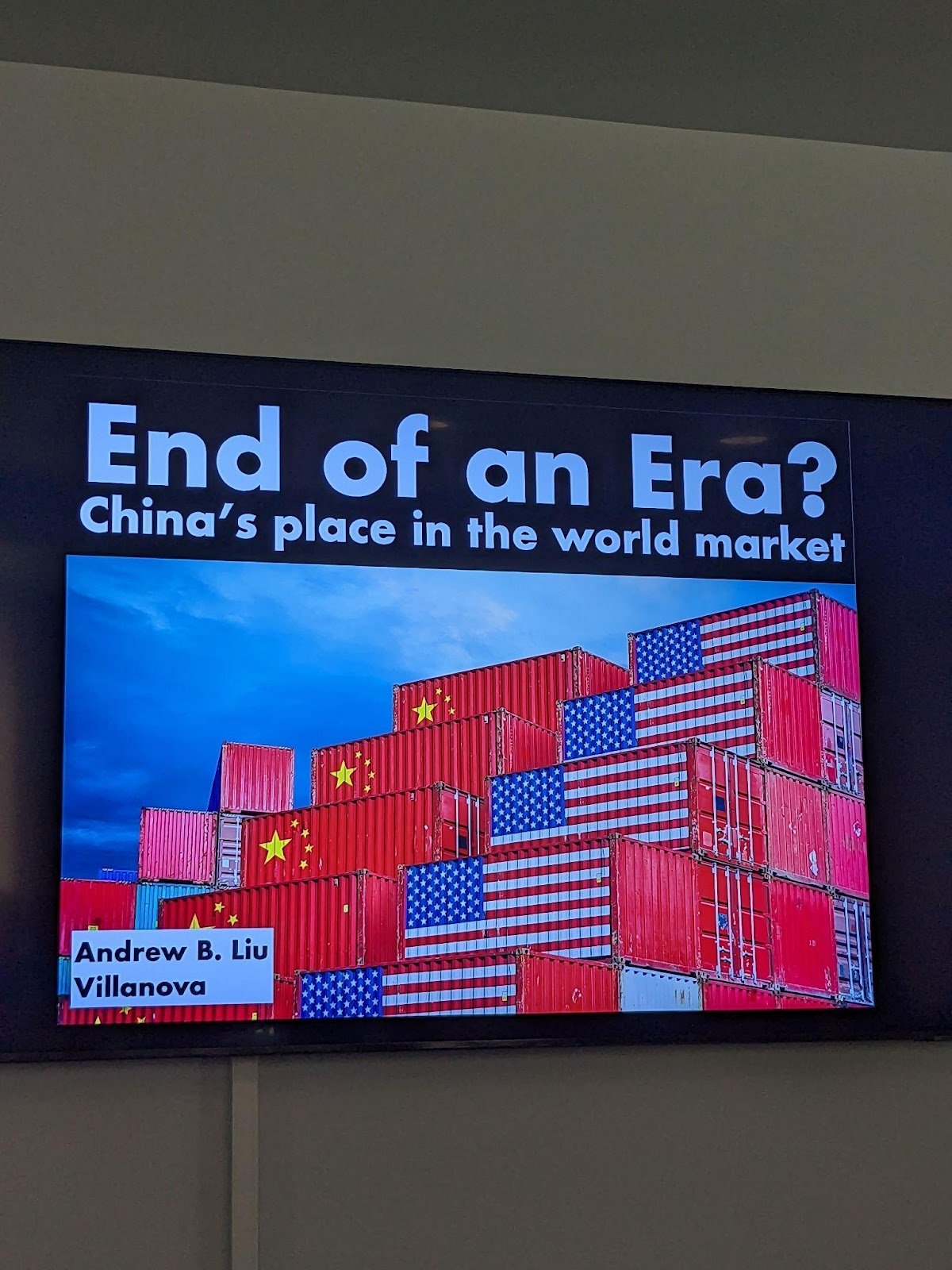By Sophie Girard
While tensions between the US and China are at a high, ties between the two countries are irreversible and crucial to world stability, says Andrew B. Liu, an expert on the history of modern China.
“The US and China are now in a sort of codependent relationship commercially, industrially, financially, and this relationship is impossible to disentangle anytime soon without damaging both superpowers and by extension, the global economy,” Liu said at the East Asia Center’s annual China lecture at UC Santa Barbara.
Andrew B. Liu is a Villanova University
Chinese history scholar and author who is raising awareness about the current strains between the US and China.
The yearly event addresses increasing tensions between the United States and China, and is supported by the China Understanding and Peace Fund.
Andrew B. Liu is a professor of modern Chinese history and political economy at Villanova University outside Philadelphia. He is the author of the book, Tea War: A History of Capitalism in China and India, and he received the 2022 Ralph Gomory prize, awarded by the Business History Conference. Liu is a member of the Critical China Scholars, a group of academics working toward solidary and against disunity, due to rising tensions between the US and China.
In recent years, new animosity between China and the US has been marked by several controversial events. Just this spring, the US government shot down an alleged Chinese spy balloon and Congress attempted to ban TikTok, a popular Chinese social media app. During this period, American attitudes towards China reached historic lows and there has been reduced interest among Americans to work in China.
Andrew B Liu’s recent lecture titled “End of an Era? China’s Place in the World Market.”
“Underlying all of these is a general ominous sense of China’s rising power and the belief that China is a threat to domestic national interests,” Liu said.
Many of these tensions have been labeled human rights concerns or issues of democracy by the U.S., but Liu suggests looking at a longer time frame to trace the bilateral relationship. In the late 80s and early 90s, American politicians knew of atrocities carried out by the Chinese government in the Tiananmen Square massacre of 1989, but they still pursued trade deals with China.
Trade and business relationships have long been a high priority for the US, and concerns about human rights in China have traditionally been raised only when business was at a low. “They almost always seem to emerge within a broader context of the US and China’s entanglements in the realm of political economy,” Liu said.
Consumer economics plays a large role in the business relationship since many consumer products are designed in the US and manufactured through China’s systems of mass production. “Everything from shoes to clothing, desks and smartphones, N-95 masks and lithium batteries,” Liu said.
As a result, economic decoupling remains nearly impossible despite recent calls for a US parting of ways with China. “To proceed by cutting itself off from China with the express aim of kneecapping China, would not only raise hostilities but would also be self-defeating in terms of growth and innovation,” Liu said.
Andrew B. Liu’s book which ties the histories of the Chinese and Indian tea industries together.
Current geopolitical strain between the US and China is also bad news for the global transition to clean energy. After Nancy Pelosi visited Taiwan in August, Chinese officials canceled major climate talks with the US. “Both countries insist that they can compartmentalize and keep climate policies away from geopolitics. But over time, we’ve seen the walls are actually quite porous,” Liu said.
Too much competition between the US and China could also impede the rest of the world’s access to renewable technologies. China is currently the top exporter of clean energy technology, and geopolitical tensions could raise prices and decrease global access to these resources. “The urgent question is really making clean energy affordable for the developing world, the rest of the world,” Liu said.
With that in mind, the Biden administration has pushed for massive spending to renew manufacturing, labor, and middle-class jobs at home. In China, efforts to rebalance wealth and increase domestic consumption have taken hold. “Optimistically, there are a lot of signs that individually, both countries have recognized the need to move on from the past economic models,” Liu said.
Liu urges a broader view of current hostilities between China and the US that takes both sides into account. “I think it would be useful to begin reframing our everyday understanding and conversations, away from the current climate of demonization and towards the recognition of problems shared in common,” he said.
Sophie Girard is a UC Santa Barbara student majoring in Communications and pursuing a minor in Professional Writing. She is a Web and Social Media intern for the Division of Humanities and Fine Arts.




